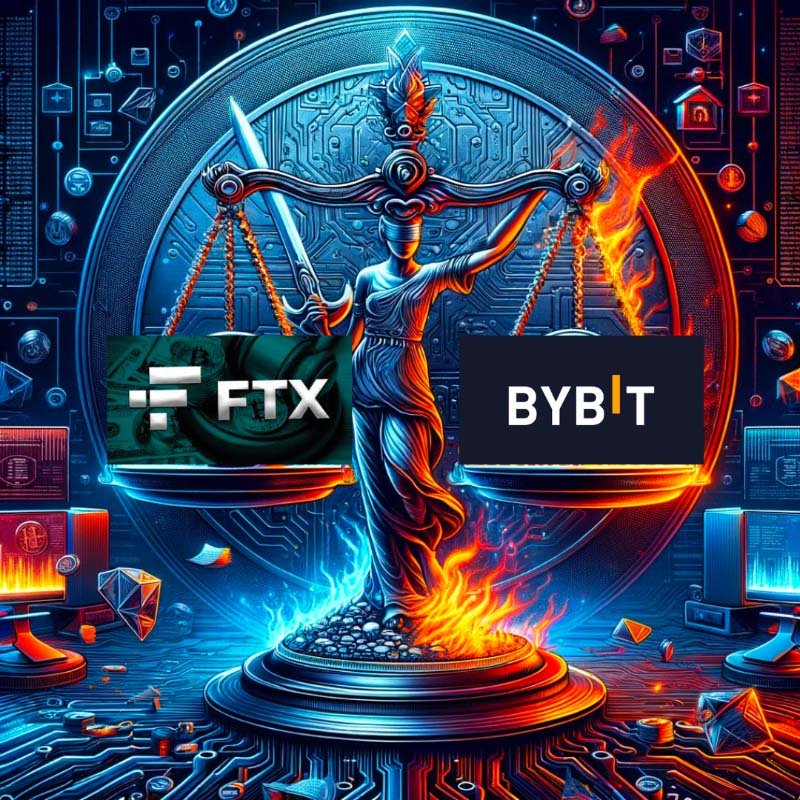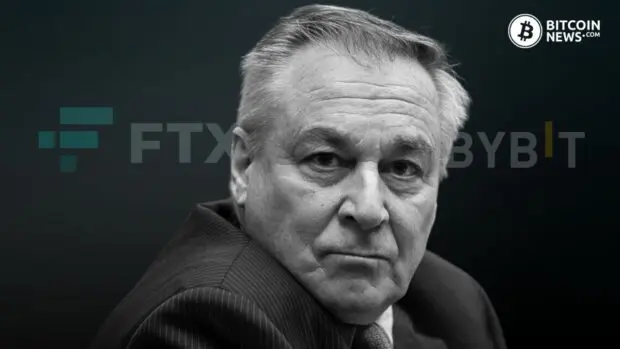In the latest dramatic twist in FTX fraud case, FTX’s bankruptcy estate has launched a massive legal crusade against rival exchange ByBit, seeking to claw back nearly $1 billion in disputed assets. This lawsuit, one of the largest stemming from FTX’s catastrophic collapse in November 2022, adds a new chapter to the ongoing saga surrounding the fallen digital asset titan.
Led by John J. Ray III, known for navigating the infamous Enron bankruptcy, FTX’s estate is pursuing justice and funds. But the path involves unraveling a tangled web of questionable practices that cut to the heart of the ethical ambiguities pervading the digital asset sphere.
The Heart of the Controversy: A VIP Status and Its Fallout
At the crux of this legal battle lies the claim that ByBit‘s investment arm Mirana was granted “VIP status” by FTX, providing access to privileges that exacerbated the exchange’s downfall. This status enabled Mirana to withdraw $500 million as FTX verged on collapse, while average customers faced frozen accounts.
According to the lawsuit, this preferential treatment allowed Mirana to bypass withdrawal limits and drained FTX’s liquidity further. The core allegation is that Mirana’s VIP access conferred an unfair advantage, deepening the hardship for regular investors caught in FTX’s unraveling.

The Final Days: A Race Against Collapse
As doubts emerged about FTX’s finances, Mirana allegedly acted swiftly to secure its funds ahead of the exchange’s collapse. This contrasts starkly with the experience of regular FTX customers, who scrambled in vain to salvage their investments as the company crumbled.
While everyday investors were trapped amid the chaos, Mirana is said to have leveraged its VIP status to expedite its exit. The lawsuit argues this disparity shows how “whales” could minimize losses, while average investors bore the full brunt of FTX’s failure.
The dichotomy between Mirana’s smooth withdrawal and the barriers faced by other customers fuels claims that FTX unethically favored key investors in its waning days.
FTX Fraud Case: Untangling a Complex Web
The allegations against ByBit extend beyond the disputed withdrawals. FTX claims ByBit manipulated markets by leveraging its ties to the decentralized organization BitDAO, in which FTX was also an investor.
This alleged scheme purportedly worsened FTX’s collapse. It adds yet another layer of complexity to an already tangled situation.
Related reading: Singh on FTX’s Missing $8B: Staggering Celebrity and Political Donations
At the heart of this legal saga is nearly $1 billion in assets FTX is working to recover. The monumental scale underscores the intricate networks and elaborate strategies defining the digital asset sphere.
As FTX’s estate navigates this landscape, unraveling the truth requires disentangling a complex web of questionable practices, preferential treatment, and market manipulation. The path ahead poses an immense legal challenge.
Seeking Justice Amid the Ruins
This legal crusade signifies more than a battle over assets. It represents a broader pursuit of justice and accountability in the aftermath of FTX’s spectacular downfall. As Ray meticulously unravels this tangled financial web, he is shining a light on questionable practices that have plagued the often murky terrain of digital asset markets.
The implications of this case are far-reaching, resonating across regulatory efforts and the digital asset world alike. But at its core, this lawsuit symbolizes a stand against the reckless actions that precipitated FTX’s collapse and crippled countless investors. It is a bid to bring order to a largely unregulated sector of the digital landscape too often defined by fraud and deception.
As the next chapter in FTX’s catastrophic story unfolds, many hope this litigation will provide a measure of recourse and stability. More broadly, it aims to send a message that even in the virtual frontiers of finance, justice can still be served. For the victims seeking recompense and clarity, much is riding on this legal crusade through stormy seas.
This case also serves as a reminder that those who simply buy bitcoin and take self custody don’t have to deal with the headaches involved when major exchanges collapse. FTX was not the first exchange to go under and it will likely not be the last.










